By Walter Sabo
a.k.a. Walter Sterling, Host
WPHT, Philadelphia, “Walter Sterling Every Damn Night”
TMN syndicated, “Sterling on Sunday”
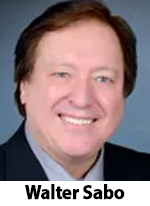 The plague of pessimism about the future of radio is fueled internally by radio employees. Doomsayers are logically found in the sales department. All day, salespeople meet with buyers. A buyer’s job is to negotiate a lower price by arguing radio’s negatives. The wall of negativity thrives within the work environment of a seller. Tough. But there is little or no reason for pessimism.
The plague of pessimism about the future of radio is fueled internally by radio employees. Doomsayers are logically found in the sales department. All day, salespeople meet with buyers. A buyer’s job is to negotiate a lower price by arguing radio’s negatives. The wall of negativity thrives within the work environment of a seller. Tough. But there is little or no reason for pessimism.
Kevin O’ Leary (a.k.a. “Mr. Wonderful” on TV’s Shark Tank) is a pragmatic investor. When asked about AI’s impact on radio, he says, “It’s the same phobia we had when television hit radio. ‘Oh, it’s going to decimate radio!’ No, it’s not. The art form exists today, even bigger, terrestrial, and in space. To me, AI is just a tool.” (Variety. January 5, 2026)
Surprising to many, radio’s audience numbers today are virtually the same as they were in 1970.
Radio Listenership Today (2020s)
Weekly Reach: As of 2022–2023, approximately 82% to 88% of Americans aged 12 and older listen to terrestrial (AM/FM) radio in a given week.
Monthly Reach: Nielsen data indicates that AM/FM radio reaches 91% of U.S. adults each month.
Daily Listening: Approximately 66% of U.S. adults listen to broadcast or streaming AM/FM radio on a daily basis.
Resiliency: Despite the rise of podcasts and music streaming, 55% of Gen Z in the U.S. still listen to AM/FM radio every day, and it remains the top reach medium, even exceeding social media.
1970s: The era of AM to FM transition and the peak of top-40 terrestrial radio, with 25 million CB radios also becoming popular in the mid-70s.
Today: While reach is still high, the amount of time spent listening is more fragmented, with radio facing competition from streaming (Spotify/Apple Music) and podcasts, although it remains the dominant ad-supported audio choice in cars.
CB radio, cassettes, 8-tracks, CDs, DVDs, Walkman, iTunes, iPhones, SiriusXM, Spotify, podcasts, Pandora… all terminators of radio. None of them made a dent. The killer of radio will be radio’s odd internal pessimism that while predicting doom that never comes drives actions that are suicidal: Elimination of audience qualitative research. Tracking. More Tracking. (Radio Fracking!) No external marketing. Endless talent cuts. No contests. (A $1,000 national contest WOW!) None of those cuts are good business because they cut potential revenues.
And yet there is a relentless, funded determination to end all FCC ownership caps allowing companies to buy more radio stations to operate with great Panglossian efficiency!
Walter Sabo has been a C-Suite action partner for companies such as SiriusXM, Hearst, Press Broadcasting, Gannett, RKO General, and many other leading media outlets. His company, HITVIEWS, in 2007, was the first to identify and monetize video influencers. His nightly show “Walter Sterling Every Damn Night” is heard on WPHT, Philadelphia. His syndicated show, “Sterling On Sunday,” from Talk Media Network, airs 10:00 pm-1:00 am ET, and is now in its 10th year of success. He can be reached by email at sabowalter@gmail.com.
Share this with your network
 Super Bowl Week coverage that will emanate live from live Radio Row in San Francisco culminating with the official local call of the game. Station PD Rick Radzik says, “After an eight-year absence, ‘The Sports Hub’ is thrilled to celebrate the Patriots’ return to the big game with fans across the region. We’ll once again deliver the best coverage all week, capped by the best call of the game on Sunday. Pats Nation will be well represented in San Francisco, and we can’t wait to be part of it.”
Super Bowl Week coverage that will emanate live from live Radio Row in San Francisco culminating with the official local call of the game. Station PD Rick Radzik says, “After an eight-year absence, ‘The Sports Hub’ is thrilled to celebrate the Patriots’ return to the big game with fans across the region. We’ll once again deliver the best coverage all week, capped by the best call of the game on Sunday. Pats Nation will be well represented in San Francisco, and we can’t wait to be part of it.”


 politics. It started with addressing the freezing weather with Allen bringing up exploding trees. Then he said, “I’m beginning to wonder if, in conditions like this, do paid protesters get hazard pay? Those are the things that I’ve been thinking about this morning.” Greenway said, “Yeah, probably not going to touch that one,” then Allen added, “Everybody’s catching strays this week. Flores, Kevin Stefanski from Baker, Charlie Biatch caught one out of nowhere. Paid protesters caught one this morning.” Prior to Monday’s program, KFAN aired Allen’s apology in which he said, in part, “While it was never meant with any ill intent or political affront, I absolutely and wholeheartedly want to apologize to those who genuinely were hurt or offended by it… As I’ve stated many times before, we serve you, not the other way around. We are very fortunate and thank you for counting on us as long as you have. It means more than you’ll ever know. My best was lacking Friday, and for that I am sorry. I am taking a few days off but wanted to express these thoughts and my sincere apology, with you, before I do.” It’s unclear whether Allen is serving an official suspension by station management and how long he’ll be off the air.
politics. It started with addressing the freezing weather with Allen bringing up exploding trees. Then he said, “I’m beginning to wonder if, in conditions like this, do paid protesters get hazard pay? Those are the things that I’ve been thinking about this morning.” Greenway said, “Yeah, probably not going to touch that one,” then Allen added, “Everybody’s catching strays this week. Flores, Kevin Stefanski from Baker, Charlie Biatch caught one out of nowhere. Paid protesters caught one this morning.” Prior to Monday’s program, KFAN aired Allen’s apology in which he said, in part, “While it was never meant with any ill intent or political affront, I absolutely and wholeheartedly want to apologize to those who genuinely were hurt or offended by it… As I’ve stated many times before, we serve you, not the other way around. We are very fortunate and thank you for counting on us as long as you have. It means more than you’ll ever know. My best was lacking Friday, and for that I am sorry. I am taking a few days off but wanted to express these thoughts and my sincere apology, with you, before I do.” It’s unclear whether Allen is serving an official suspension by station management and how long he’ll be off the air. Madson and Jesse Tapia airs live from 7:0 am to 9:00 am with a replay airing from 12:00 noon to 2:00 pm the same day. The station notes that this is Tapia’s first on-air role and that he’ll continue producing the “D-Lo and KC” show. That program, starring Damien Barling & Kenny Caraway, is moving to the 2:00 pm to 6:00 pm daypart. The station adds that James Ham is expanding his role as the Sacramento Kings insider as he’ll provide breaking news updates and analysis weekly on “The Jump” and “D-Lo & KC.” Station brand manager Kyle Madson says, “Jesse brings a wealth of knowledge and enthusiasm for sports, and we’re excited to evolve our lineup with the launch of ‘The Jump,’ bringing high-energy to Sacramento mornings. By moving the unmatched wit of D-Lo & KC to the full afternoon drive and having James as our Kings Insider across all shows, we’re doubling down on the local insight and personality that defines Northern California sports radio.”
Madson and Jesse Tapia airs live from 7:0 am to 9:00 am with a replay airing from 12:00 noon to 2:00 pm the same day. The station notes that this is Tapia’s first on-air role and that he’ll continue producing the “D-Lo and KC” show. That program, starring Damien Barling & Kenny Caraway, is moving to the 2:00 pm to 6:00 pm daypart. The station adds that James Ham is expanding his role as the Sacramento Kings insider as he’ll provide breaking news updates and analysis weekly on “The Jump” and “D-Lo & KC.” Station brand manager Kyle Madson says, “Jesse brings a wealth of knowledge and enthusiasm for sports, and we’re excited to evolve our lineup with the launch of ‘The Jump,’ bringing high-energy to Sacramento mornings. By moving the unmatched wit of D-Lo & KC to the full afternoon drive and having James as our Kings Insider across all shows, we’re doubling down on the local insight and personality that defines Northern California sports radio.” end-to-end, cloud-native operating system designed specifically for radio… powered by a suite of proprietary AI technologies that master, schedule, produce, and deliver each station directly to a Super Hi-Fi playout device at the transmitter.” Warshaw says, “Our mission is to have the best live and local radio experience in every market across America and Super Hi-Fi’s unique capabilities will allow us to do that in ways the industry just didn’t have before. We’re excited to work with them to drive forward and deliver the most compelling radio products in the industry.”
end-to-end, cloud-native operating system designed specifically for radio… powered by a suite of proprietary AI technologies that master, schedule, produce, and deliver each station directly to a Super Hi-Fi playout device at the transmitter.” Warshaw says, “Our mission is to have the best live and local radio experience in every market across America and Super Hi-Fi’s unique capabilities will allow us to do that in ways the industry just didn’t have before. We’re excited to work with them to drive forward and deliver the most compelling radio products in the industry.”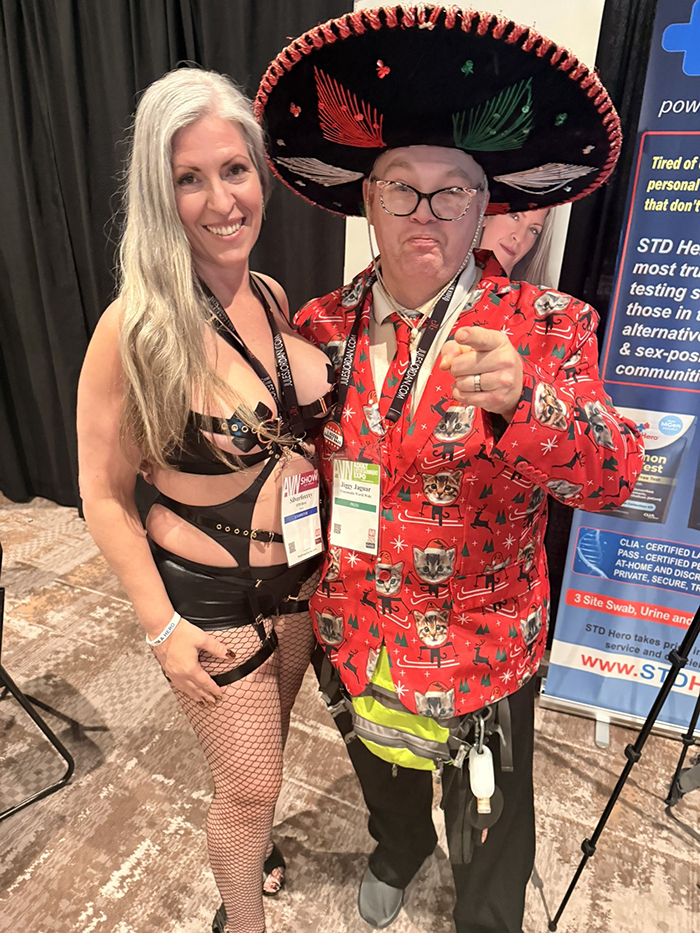
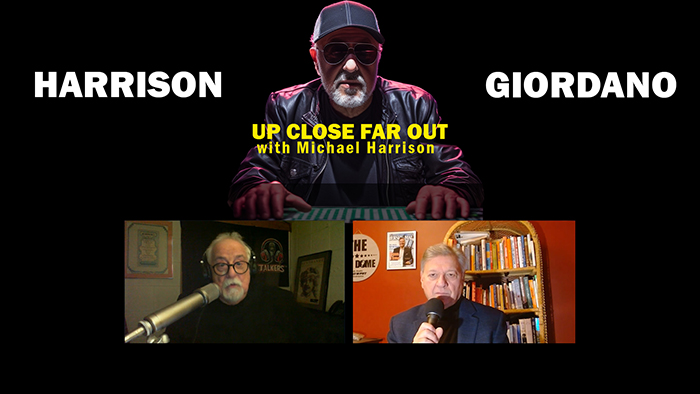
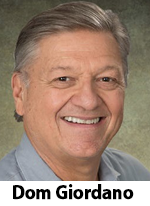 Giordano is a political commentator, social generalist and seasoned expert on education. He is a former Pennsylvania-based schoolteacher whose keen insights, innovative ideas, and communication skills were discovered by talk radio in Philadelphia in 1987 when, after serving as a dependable “go-to” source on education, he became a fulltime host on WWDB-FM. In 2000, he moved over to powerhouse WPHT 1210 am in Philly where he has been broadcasting ever since. In addition to his enduring radio presence, Giordano hosts several podcasts including the groundbreaking “Old School, New School, Next School” which takes a critical-but-constructive view of America’s education crisis and is must-listening for parents who care about their kids and the future of America. Get ready for a no-holds-barred view of such hot topics as school choice, the tyranny of social media, the distraction of smart phones, short term attention spans, bullying, the threat of guns and violence, responsible parenting, media complacency, and a whole lot more.
Giordano is a political commentator, social generalist and seasoned expert on education. He is a former Pennsylvania-based schoolteacher whose keen insights, innovative ideas, and communication skills were discovered by talk radio in Philadelphia in 1987 when, after serving as a dependable “go-to” source on education, he became a fulltime host on WWDB-FM. In 2000, he moved over to powerhouse WPHT 1210 am in Philly where he has been broadcasting ever since. In addition to his enduring radio presence, Giordano hosts several podcasts including the groundbreaking “Old School, New School, Next School” which takes a critical-but-constructive view of America’s education crisis and is must-listening for parents who care about their kids and the future of America. Get ready for a no-holds-barred view of such hot topics as school choice, the tyranny of social media, the distraction of smart phones, short term attention spans, bullying, the threat of guns and violence, responsible parenting, media complacency, and a whole lot more.  politics! If you live and breathe politics, this is not the job for you. This is an 8-hour-a-day, full-time job doing prep, research, and living life that translates and relates to a 35-64-year-old. Must have an extremely strong work ethic, be sales department and client friendly, a team player and coachable, embrace all social media platforms daily, be a great interviewer, and have a proven track record of radio ratings success. The right fit for this job is extremely reliable, flexible and passionate about radio and digital audio mediums.
politics! If you live and breathe politics, this is not the job for you. This is an 8-hour-a-day, full-time job doing prep, research, and living life that translates and relates to a 35-64-year-old. Must have an extremely strong work ethic, be sales department and client friendly, a team player and coachable, embrace all social media platforms daily, be a great interviewer, and have a proven track record of radio ratings success. The right fit for this job is extremely reliable, flexible and passionate about radio and digital audio mediums.  is a fearless communicator with unmatched credibility. His experience, intelligence, and no-nonsense delivery make him a strong addition to our primetime lineup. Scott doesn’t just react to the news — he shapes the conversation and arms listeners with insight they can use.” Jennings comments, “I’m thrilled to join the lineup at Seattle Red! My mission is to debunk liberal narratives, bring forward blockbuster news-making conversations, and give the audience a daily dose of common sense. Can’t wait to be part of this terrific station!”
is a fearless communicator with unmatched credibility. His experience, intelligence, and no-nonsense delivery make him a strong addition to our primetime lineup. Scott doesn’t just react to the news — he shapes the conversation and arms listeners with insight they can use.” Jennings comments, “I’m thrilled to join the lineup at Seattle Red! My mission is to debunk liberal narratives, bring forward blockbuster news-making conversations, and give the audience a daily dose of common sense. Can’t wait to be part of this terrific station!” The plague of pessimism about the future of radio is fueled internally by radio employees. Doomsayers are logically found in the sales department. All day, salespeople meet with buyers. A buyer’s job is to negotiate a lower price by arguing radio’s negatives. The wall of negativity thrives within the work environment of a seller. Tough. But there is little or no reason for pessimism.
The plague of pessimism about the future of radio is fueled internally by radio employees. Doomsayers are logically found in the sales department. All day, salespeople meet with buyers. A buyer’s job is to negotiate a lower price by arguing radio’s negatives. The wall of negativity thrives within the work environment of a seller. Tough. But there is little or no reason for pessimism.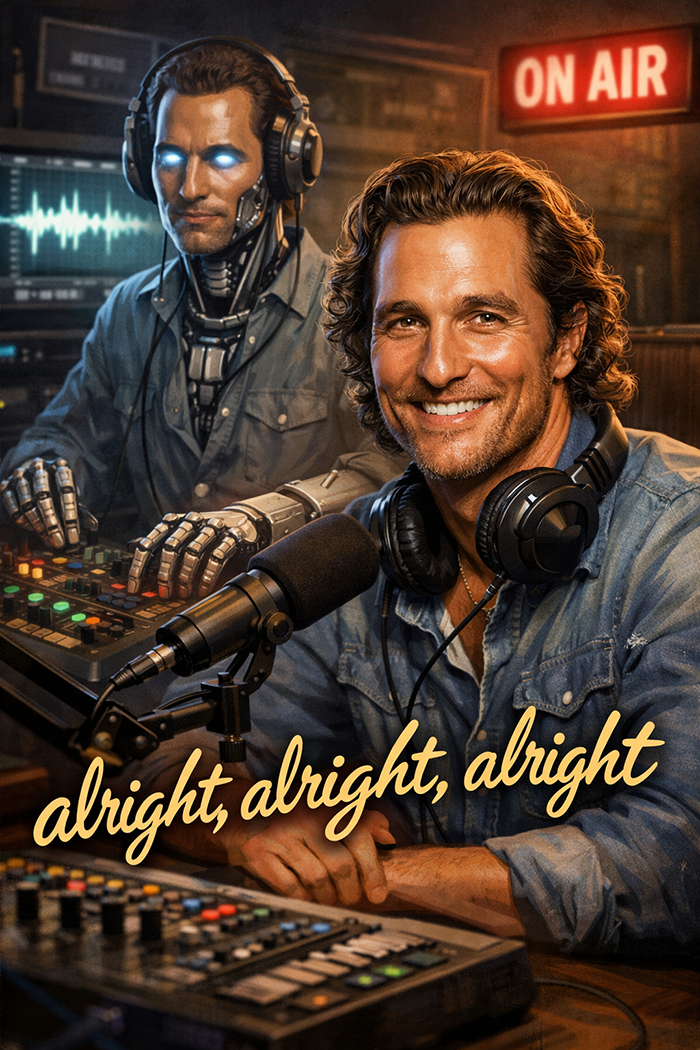
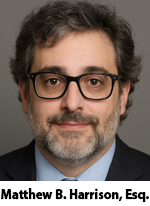 For years, “protect your name and likeness” sounded like lawyer advice in search of a problem. Abstract. Defensive. Easy to ignore. That worked when misuse required effort, intent, and a human decision-maker willing to cross a line.
For years, “protect your name and likeness” sounded like lawyer advice in search of a problem. Abstract. Defensive. Easy to ignore. That worked when misuse required effort, intent, and a human decision-maker willing to cross a line.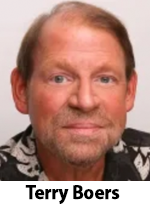 January of 2017. WSCR operations manager Mitch Rosen posted the following to social media: “The Score lost one of our own today. Terry Boers passed away today surrounded by loved ones. Terry was one of the founding fathers of The Score and one of the most popular people on the air and in The Score hallways. Terry was original, funny, smart, witty and most importantly a beautiful person. Terry’s family’s wish is there won’t be a funeral, but The Score will celebrate his life on the air next week. So today and forever, RIP Terry Boers.” Boer was one of the original hosts on “The Score when it launched in January 1992. Boers had worked for years in the newspaper business, including as a sports columnist for the Chicago Sun-Times.
January of 2017. WSCR operations manager Mitch Rosen posted the following to social media: “The Score lost one of our own today. Terry Boers passed away today surrounded by loved ones. Terry was one of the founding fathers of The Score and one of the most popular people on the air and in The Score hallways. Terry was original, funny, smart, witty and most importantly a beautiful person. Terry’s family’s wish is there won’t be a funeral, but The Score will celebrate his life on the air next week. So today and forever, RIP Terry Boers.” Boer was one of the original hosts on “The Score when it launched in January 1992. Boers had worked for years in the newspaper business, including as a sports columnist for the Chicago Sun-Times.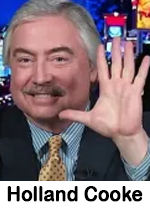 Notice how often you see one in TV commercials, even when the product has nothing to do with pets? I see spots for a local building supply outlet, in which the owner’s dog ambles through every shot, then plops down – seeming to smile – among employees in the closing shot.
Notice how often you see one in TV commercials, even when the product has nothing to do with pets? I see spots for a local building supply outlet, in which the owner’s dog ambles through every shot, then plops down – seeming to smile – among employees in the closing shot.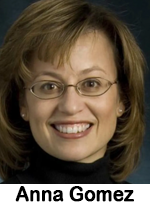 fundamentally changed with respect to our political broadcasting rules. The FCC has not adopted any new regulation, interpretation, or Commission-level policy altering the long-standing news exemption or equal time framework. For decades, the Commission has recognized that bona fide news interviews, late-night programs, and daytime news shows are entitled to editorial discretion based on newsworthiness, not political favoritism. That principle has not been repealed, revised, or voted on by the Commission. This announcement therefore does not change the law, but it does represent an escalation in this FCC’s ongoing campaign to censor and control speech.
fundamentally changed with respect to our political broadcasting rules. The FCC has not adopted any new regulation, interpretation, or Commission-level policy altering the long-standing news exemption or equal time framework. For decades, the Commission has recognized that bona fide news interviews, late-night programs, and daytime news shows are entitled to editorial discretion based on newsworthiness, not political favoritism. That principle has not been repealed, revised, or voted on by the Commission. This announcement therefore does not change the law, but it does represent an escalation in this FCC’s ongoing campaign to censor and control speech.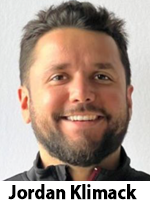 WKNR-AM “ESPN Cleveland.” The station says in a social media post, “Since joining the station in 2018, he’s played a key role in shaping programming, managing content across platforms, and helping drive the station’s expanding digital strategy. We’re excited to see Jordan lead our programming and content vision now and into the future. Well deserved!”
WKNR-AM “ESPN Cleveland.” The station says in a social media post, “Since joining the station in 2018, he’s played a key role in shaping programming, managing content across platforms, and helping drive the station’s expanding digital strategy. We’re excited to see Jordan lead our programming and content vision now and into the future. Well deserved!” 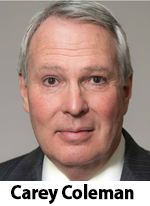 Coleman was a television meteorologist who worked in the Cleveland market at WKYC-TV and WOIO-TV, as well as with The Weather Channel and CNN. Carey’s campaign website says “understands the real challenges facing working families: rising costs, government overreach, and a political system that puts insiders ahead of citizens. He is running for Congress to restore fiscal discipline, secure our borders, defend constitutional freedoms, support law enforcement, and ensure parents have a strong voice in their children’s education.”
Coleman was a television meteorologist who worked in the Cleveland market at WKYC-TV and WOIO-TV, as well as with The Weather Channel and CNN. Carey’s campaign website says “understands the real challenges facing working families: rising costs, government overreach, and a political system that puts insiders ahead of citizens. He is running for Congress to restore fiscal discipline, secure our borders, defend constitutional freedoms, support law enforcement, and ensure parents have a strong voice in their children’s education.”  ranks podcasts based on total audience reach from
ranks podcasts based on total audience reach from  episodes viewed and streamed on YouTube and Spotify; and Podcast video clips played on Instagram, TikTok and YouTube. Under this new format, Podtrac’s Multi-Channel Podcast Ranking for December 2025 ranks “The Meidas Touch Podcast” #1, followed by “The Joe Rogan Experience” at #2, and “The Rest is History” at #3. Other news/talk media related shows of note include: “The Tucker Carlson Show” at #12, and “The Ben Shapiro Show” at #17.
episodes viewed and streamed on YouTube and Spotify; and Podcast video clips played on Instagram, TikTok and YouTube. Under this new format, Podtrac’s Multi-Channel Podcast Ranking for December 2025 ranks “The Meidas Touch Podcast” #1, followed by “The Joe Rogan Experience” at #2, and “The Rest is History” at #3. Other news/talk media related shows of note include: “The Tucker Carlson Show” at #12, and “The Ben Shapiro Show” at #17. 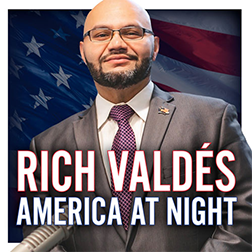 Media Federation and its streaming network Festiva TV syndication partnership. The deal will make Valdés’ late-night show exclusively in Spanish to Roku’s 90 million+ subscribed households. Valdés’ English-language show continues to be available via iHeartRadio, and Valdés says he is “completely open to English syndication opportunities across terrestrial radio, cable television, and streaming platforms like Rumble—building on my ongoing work in those spaces.”
Media Federation and its streaming network Festiva TV syndication partnership. The deal will make Valdés’ late-night show exclusively in Spanish to Roku’s 90 million+ subscribed households. Valdés’ English-language show continues to be available via iHeartRadio, and Valdés says he is “completely open to English syndication opportunities across terrestrial radio, cable television, and streaming platforms like Rumble—building on my ongoing work in those spaces.”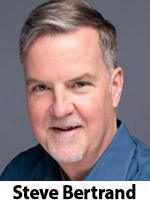 with the Lifetime Achievement Award, an honor designated contributions to local news. Bertrand has been a trusted voice on WGN Radio for four decades, anchoring news since 1992 and earning the confidence of generations of Chicago listeners. Over his career, he covered many of the most significant local and national events of the past 40 years while mentoring colleagues and helping define the standard for excellence in local radio journalism. His retirement in 2025 marks the culmination of a lifetime dedicated to informing the public and strengthening the role of local news.”
with the Lifetime Achievement Award, an honor designated contributions to local news. Bertrand has been a trusted voice on WGN Radio for four decades, anchoring news since 1992 and earning the confidence of generations of Chicago listeners. Over his career, he covered many of the most significant local and national events of the past 40 years while mentoring colleagues and helping define the standard for excellence in local radio journalism. His retirement in 2025 marks the culmination of a lifetime dedicated to informing the public and strengthening the role of local news.” 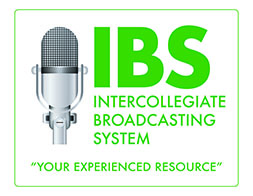 gathering – will take place February 19-21 at the Sheraton Times Square Hotel in midtown Manhattan.
gathering – will take place February 19-21 at the Sheraton Times Square Hotel in midtown Manhattan. Providence market outlet for Audacy’s sports talk WEEI-FM, Boston for more than two decades. Audacy closed the WVEI offices in 2023. Ocean State Media president and CEO Pam Johnston says they are spending $4.9 million on the new FM. “From an operational and financial standpoint, we are going to be financing the cost of this frequency, which will allow us to eventually sell all the frequencies that we currently have. And so over time we believe that this transaction actually is going to pay for itself.” She says making it easier for listeners is important, “One signal reaching much farther than our current series of five different signals, a greater experience where you don’t have to change the channel as you move your way through Rhode Island and southeastern Massachusetts.”
Providence market outlet for Audacy’s sports talk WEEI-FM, Boston for more than two decades. Audacy closed the WVEI offices in 2023. Ocean State Media president and CEO Pam Johnston says they are spending $4.9 million on the new FM. “From an operational and financial standpoint, we are going to be financing the cost of this frequency, which will allow us to eventually sell all the frequencies that we currently have. And so over time we believe that this transaction actually is going to pay for itself.” She says making it easier for listeners is important, “One signal reaching much farther than our current series of five different signals, a greater experience where you don’t have to change the channel as you move your way through Rhode Island and southeastern Massachusetts.”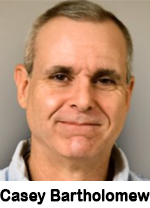 WPHT, Philadelphia on “Sterling Every Damn Night” for Walter Sterling. Sterling says, “When I read in TALKERS that Casey was on the loose, I immediately grabbed him to guest star on my 10:00 pm to 1:00 am show. He has a stunning history of winning ratings in the Northeast on ‘New Jersey 101.5.’ We approach radio content from a similar perspective; it’s not that important. Our goal is to give the listener a reason to eat the wrong snack.”
WPHT, Philadelphia on “Sterling Every Damn Night” for Walter Sterling. Sterling says, “When I read in TALKERS that Casey was on the loose, I immediately grabbed him to guest star on my 10:00 pm to 1:00 am show. He has a stunning history of winning ratings in the Northeast on ‘New Jersey 101.5.’ We approach radio content from a similar perspective; it’s not that important. Our goal is to give the listener a reason to eat the wrong snack.” iHeartRadio’s “Stuff You Should Know” was #1, followed by Audacy’s “48 Hours” at #2 and Salem Media Group’s “Charlie Kirk Show” at #3. Other talk radio-related shows include Cumulus Podcast Network’s “VINCE” at #10, iHeartRadio’s “The Clay Travis and Buck Sexton Show” at #11, and “Armstrong & Getty on Demand” at #14.
iHeartRadio’s “Stuff You Should Know” was #1, followed by Audacy’s “48 Hours” at #2 and Salem Media Group’s “Charlie Kirk Show” at #3. Other talk radio-related shows include Cumulus Podcast Network’s “VINCE” at #10, iHeartRadio’s “The Clay Travis and Buck Sexton Show” at #11, and “Armstrong & Getty on Demand” at #14. 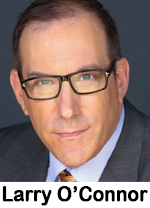 clarity, and consistency, earning the respect of audiences, peers, and industry leaders alike. He brings decades of experience across writing, podcasts, broadcast, and live events, along with a proven record of leadership, audience growth, and editorial excellence to one of the nation’s most influential conservative platforms. O’Connor is known for his deep understanding of the political and cultural landscape. His career spans multiple media formats, and he has built a large, loyal national audience by combining sharp analysis, principled conservatism, and engaging conversations.” O’Connor has been writing for Townhall and HotAir since 2016. His daily podcast, LARRY, is streamed at 12:00 noon ET on Townhall.com and YouTube. O’Connor comments, “Townhall has been a cornerstone of the conservative movement for decades, and I’m incredibly honored and excited to take on the role of editor. This is a platform with a powerful legacy, an outstanding team of contributors, and a loyal audience that cares deeply about ideas, culture, and the future of our country. I’m eager to build on that foundation, elevate strong conservative voices, and help Townhall continue to inform, challenge, and inspire readers every day.”
clarity, and consistency, earning the respect of audiences, peers, and industry leaders alike. He brings decades of experience across writing, podcasts, broadcast, and live events, along with a proven record of leadership, audience growth, and editorial excellence to one of the nation’s most influential conservative platforms. O’Connor is known for his deep understanding of the political and cultural landscape. His career spans multiple media formats, and he has built a large, loyal national audience by combining sharp analysis, principled conservatism, and engaging conversations.” O’Connor has been writing for Townhall and HotAir since 2016. His daily podcast, LARRY, is streamed at 12:00 noon ET on Townhall.com and YouTube. O’Connor comments, “Townhall has been a cornerstone of the conservative movement for decades, and I’m incredibly honored and excited to take on the role of editor. This is a platform with a powerful legacy, an outstanding team of contributors, and a loyal audience that cares deeply about ideas, culture, and the future of our country. I’m eager to build on that foundation, elevate strong conservative voices, and help Townhall continue to inform, challenge, and inspire readers every day.”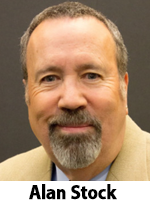 bring together leaders from Nevada’s Jewish community, educators, advocates, and law enforcement professionals to advise the governor on emerging challenges, community safety concerns, and long-term policy solutions.” Stock tells TALKERS, “The group will provide an important opportunity for Jewish community leaders to share their perspectives and ensure that Nevada Governor Joe Lombardo hears directly from those affected as we work together to address antisemitism in Nevada. Policy recommendations will be due by April 15, shaping the agenda for Nevada’s 2027 legislative session.” Stock hosts his daily morning program “Vegas @ 8” on news/talk KXNT and produces commentaries that air three times per day on the Audacy station.
bring together leaders from Nevada’s Jewish community, educators, advocates, and law enforcement professionals to advise the governor on emerging challenges, community safety concerns, and long-term policy solutions.” Stock tells TALKERS, “The group will provide an important opportunity for Jewish community leaders to share their perspectives and ensure that Nevada Governor Joe Lombardo hears directly from those affected as we work together to address antisemitism in Nevada. Policy recommendations will be due by April 15, shaping the agenda for Nevada’s 2027 legislative session.” Stock hosts his daily morning program “Vegas @ 8” on news/talk KXNT and produces commentaries that air three times per day on the Audacy station.